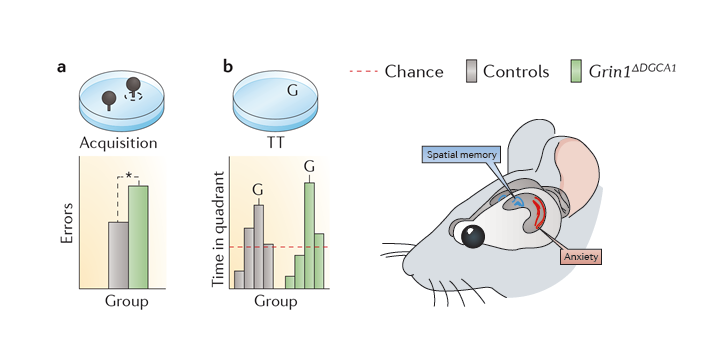Hippocampal synaptic plasticity, spatial memory and anxiety.
It is widely believed that spatial learning and memory require long-term changes in a brain region called the hippocampus. This review challenges this received wisdom and uses recent evidence to argue that, rather than encoding or storing spatial memories, the hippocampus may use spatial information to resolve conflict and reduce uncertainty. This may explain its role in anxiety as well as memory.
Recent studies using transgenic mice lacking NMDA receptors in the hippocampus challenge the long-standing hypothesis that hippocampal long-term potentiation-like mechanisms underlie the encoding and storage of associative long-term spatial memories. However, it may not be the synaptic plasticity-dependent memory hypothesis that is wrong; instead, it may be the role of the hippocampus that needs to be re-examined. We present an account of hippocampal function that explains its role in both memory and anxiety.

2023. PLoS Comput Biol, 19(4)e1010719.
2024. Sci Rep, 14(1):30097.
